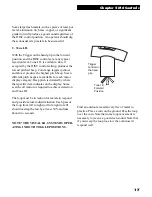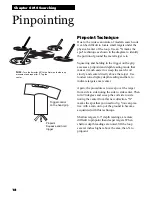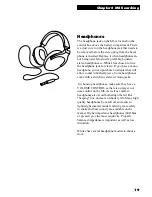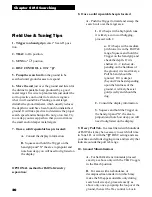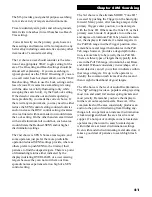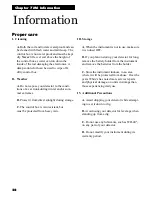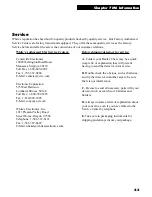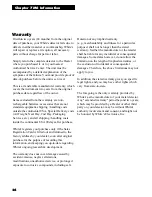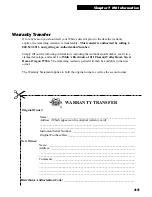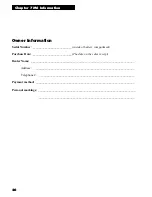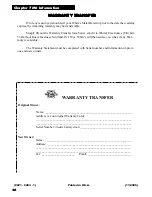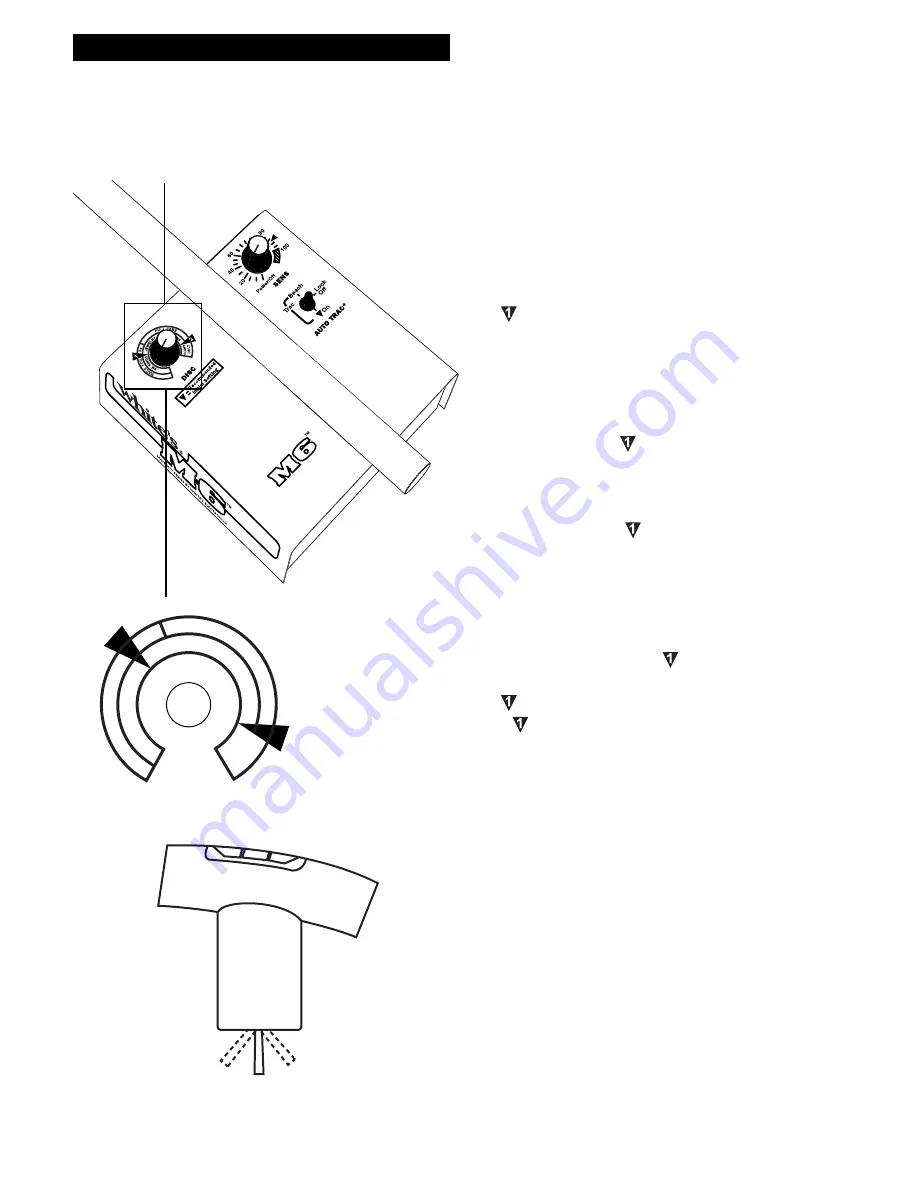
16
DISC (Discrimination) is used to adjust the level of
audio rejection against trash metals.
The
(Preset) just below NICKEL is recom-
mended for most general purpose searching. In this
position, the detector will provide a reject response
to most iron and small foil and respond to most
valuables including jewelry.
Positions lower than
(counterclockwise)
provide less trash metal rejection, to the point of
detecting virtually all types of common metals.
Positions higher than
(clockwise) will reject
more trash metals including aluminum pull tabs.
The display will continue to indicate I.D. even
though the audio discriminator will signal with a
reject (suppressed or broken) sound. Nickels and
some jewelry will also be rejected with DISC
settings much greater than
.
The
position is recommended. If, when searching
at the
position, you feel you are digging too
much trash, adjust DISC slightly clockwise and try
again. Finding the lowest (furthest counterclock-
wise) position that eliminates the common trash
metals in your area is important in order to find
items of jewelry.
The M6 provides two significantly different DISC
(Discrimination) modes.
1. Traditional DISC
Put the Trigger on the hand grip in the center
position. When a trash metal is being rejected it will
produce no beep at all or a suppressed beep that is
shorter sounding typically inconsistent, a click or
flutter-sounding beep. When a valuable metal is
accepted it will produce a consistent, smooth, solid,
and longer sounding beep.
DISC (Discrimination)
Control
Chapter 5 M6 Controls
Chapter 5 MXT Controls
DISC CONTROL
DISC
Trigger
control on
the hand
grip
5¢
PU
LL
TA
B
S
N
A
IL
S
F
O
IL
JE
WELRY RIN
G
S
C
O
IN
S
S
M
.
R
IN
G
S
1
2
C
O
IN
S
O
N
LY
Summary of Contents for M6
Page 10: ...10 ...
















